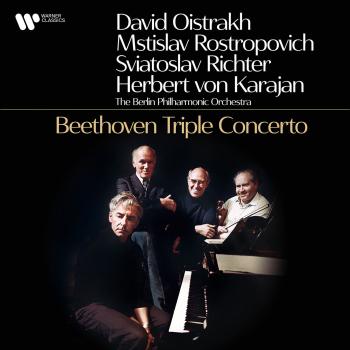Friedrich Schorr
Biography Friedrich Schorr
Friedrich Schorr
the son of the well-known Jewish cantor Mayer Schorr (who, born in Romania, from 1891 sang in the major synagogue of Vienna and was much admired by Mahler) initially wished to become a lawyer. He enrolled at the University of Vienna as a law student, but also studied singing with Adolf Robinson, a singer with a distinguished track record in Europe and America who also taught Leo Slezak and Joseph Schwarz, amongst others.
Having appeared in Chicago in small parts early in 1912, Schorr then auditioned for the Graz Opera, whose intendant invited him to make his formal debut in the summer of that year, as Wotan / Die Walküre. He remained a member of the Graz Opera from 1912 until 1916, during the same period often singing also in Vienna, where he gained a following from its knowledgeable audiences. Next Schorr joined the opera ensemble of the German Theatre in Prague, staying for two years until 1918, and following this with a period of five years, from 1918 to 1923, with the Cologne Opera.
From 1923 to 1931 he was a leading baritone at the Berlin State Opera, singing not only the major bass-baritone roles of Wagner, but also such significant parts as the title role in Doktor Faust (Busoni, 1927), Cardinal Borromeo / Palestrina (Pfitzner), Barak / Die Frau ohne Schatten and Altair / Die aegyptische Helena (1928). He also took part in the first performances of Die Zwingburg (Krenek, 1924) and Der singende Teufel (Schreker, 1928). Between 1925 and 1931 Schorr was a frequent performer at the Bayreuth Festival, singing Wotan regularly in cycles of Der Ring des Nibelungen.
At the Royal Opera House, London Schorr first sang in 1924, as Wotan and Gunther in Der Ring des Nibelungen. He returned in 1925 to sing Orest / Elektra, the title part in Der fliegende Holländer and Sachs / Die Meistersinger von Nürnberg as well as the Walküre Wotan; and visited London again in 1930 and 1931. Other significant guest appearances included the Teatro Colón, Buenos Aires (1926), the Kroll Oper, Berlin in the title role of Hans Heiling (Marschner, 1929) and the Paris Opera, as Wotan (1930) and Kurwenal / Tristan und Isolde (1935).
During 1923, while touring North America with the German Opera Company, Schorr was heard by the manager of the New York Metropolitan Opera, Gatti-Casazza, who immediately offered him a contract. He made his debut at the Met at the beginning of 1924 as Wolfram / Tannhäuser, quickly following this with Sachs / Die Meistersinger von Nürnberg which was described by the critic Lawrence Gilman as a ‘truly great performance’. Having ceased to sing in Germany following the rise to power of the Nazi party, Schorr remained a highly valued member of the Met’s company until 1943. During this period he sang eighteen different parts in over 450 performances, clearly establishing himself as the greatest Wagner bass-baritone of his generation. He took part in several Met premieres, including Jonny spielt auf (1929), Schwanda the Bagpiper (1931) and Elektra (Orest, 1932), and gave powerful performances as Jochanaan / Salome, Pizarro / Fidelio and Faninal / Der Rosenkavalier. But it was for his unparalleled interpretations of Wotan and Hans Sachs that he will be most strongly remembered, and it was as the Wanderer / Siegfried that he made his farewell appearance at the Met in 1943 (having already decided, five years previously in 1938, to begin teaching).
Schorr continued to be active as a stage producer, for the City Centre Opera in New York, and taught at both the Manhattan School of Music and the Hartt School in Hartford, Connecticut. His pupils included Cornell MacNeil, Ezio Flagello, Arturo Sergi, Marilyn Tyler, Grace Hoffman and Carlos Alexander.
The possessor of a rich, powerful but above all steady voice, Schorr was able to produce a beautiful mezza voce. His singing was especially notable for its smooth, legato line. He himself said that he would approach a performance of ‘Wotan’s Farewell’ with as much care for the cantilena (the legato singing-line) as if it were one of the baritone solos in Un ballo in maschera. As such his singing of Wagner remains unsurpassed.











